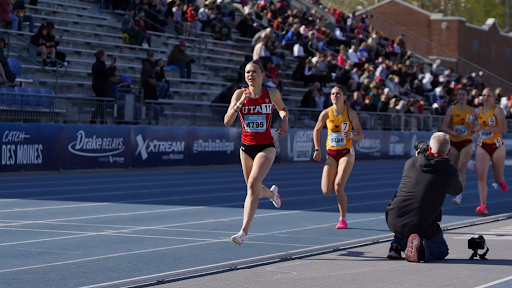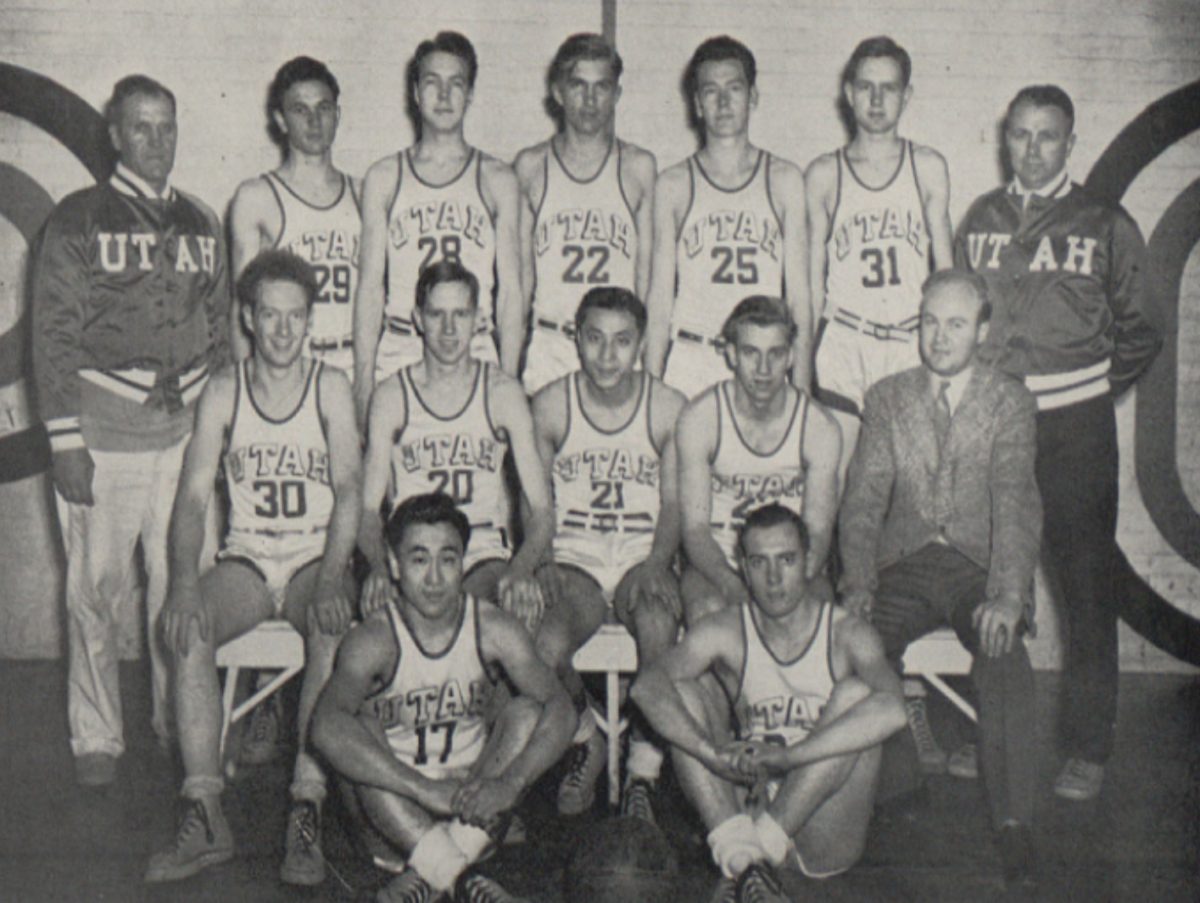Alexander: USADA Should Revisit Its Stance on Marijuana
(Graphic by Piper Armstrong | The Daily Utah Chronicle)
July 21, 2021
At this point, Sha’Carri Richardson should be a household name. The incredibly talented track star was destined to win gold in the women’s 100-meter dash at this year’s Tokyo Olympics. But before her dreams could become a reality, the United States Anti-Doping Agency (or USADA) suspended her for 30 days following a positive drug test, leading to her disqualification and ultimate exclusion from the U.S. Olympic track team. The drug in question? Marijuana.
Our nation has a complicated history with marijuana. Possession of the drug has imprisoned millions of Americans, with quite obvious racial disparities in sentencing and arrest rates.
As society changes its stance on marijuana, the stigma and negativity surrounding it have faltered. Yet Richardson’s suspension remains in place — even after the USADA released a statement expressing their sympathy for Richardson.
Despite efforts to legalize and decriminalize marijuana across the nation, the USADA and U.S. Olympics team cannot move past negative sentiments towards it. The USADA needs to align itself with public opinion by removing marijuana from the prohibited substances list and lifting Richardson’s suspension.
Richardson’s Case
Richardson’s suspension infuriates many, and with good reason. Richardson openly admitted to smoking marijuana. She didn’t cower or lie, but instead confessed and apologized for smoking to cope with the death of her mother. In addition, she smoked in Oregon, a state that legalized recreational marijuana usage and was the location of the Olympic trials.
Richardson should be allowed to compete, which seems to be a common sentiment. She garnered support from the likes of Rep. Alexandria Ocasio-Cortez, other Congressional lawmakers and Donald Trump Jr. A petition to lift her suspension and reinstate her to the U.S. Olympic Track and Field roster amassed over 500,000 signatures.
Her run times speak for themselves. Not only did she accomplish great feats as a Louisiana State University freshman, but she remains one of the fastest women on the planet. Reinstating Richardson onto the U.S. Olympic Team for the Tokyo Olympics should be a no-brainer if the U.S. aims to have as many gold medalists as possible.
Public Opinion and Marijuana
Outside of Richardson’s suspension, however, the debate surrounding the use of marijuana continues. Various sources and studies all conclude that marijuana does not enhance performance, with some believing that it causes less harm than alcohol. Despite this, athletes can still consume alcohol and tobacco, while marijuana consumption remains prohibited.
So the question remains: Why is marijuana still on the list of prohibited substances for athletes?
The reasoning is simple: many nations that participate in the Olympics still feel negativity towards marijuana, with bans of their own against the drug. However, this excuse hinders our athletes, who fall victim to the war on drugs — which the U.S. started, I might add — even though the nation’s opinions of marijuana continue to evolve.
Favorable public opinion on marijuana in the U.S. is growing. Our own athletes admit to marijuana use — as do other high-profile Americans and celebrities. And with almost 52% of Americans having tried marijuana at least once, marijuana usage appears to be widespread.
As of 2020, 68% of Americans support the legalization of marijuana.With that, more states are decriminalizing marijuana usage and legalizing the drug. Currently, 18 states and Washington, D.C. allow for the recreational use of marijuana. As public opinion becomes more supportive of marijuana usage and legalization, the U.S. Olympic Committee and USADA need to follow suit and align their policies with the people supporting them.
The Big Picture
Richardson’s suspension from the Olympics exhibits a larger problem with America’s progress in accepting marijuana. For people of color, the criminalization of marijuana has imprisoned them for generations. For athletes, it prevents them from accomplishing their goals at competitions across the nation and the globe.
And ultimately, Richardson is human. She shouldn’t have to put her dreams on hold because of the USADA’s failure to catch up with the times and growing support of marijuana.
Richardson is not the only one who has been prohibited from competing because of marijuana. And realistically, she won’t be the last, as marijuana has oppressed people of color for far too long. Regardless of its widespread usage, people of color will continue to face oppression for marijuana use. But if the U.S. legalizes recreational marijuana, then we can begin repairing the damage already done to communities of color.
With change in policy and in opinion, hopefully, no other athlete will fall victim to outdated marijuana laws.













